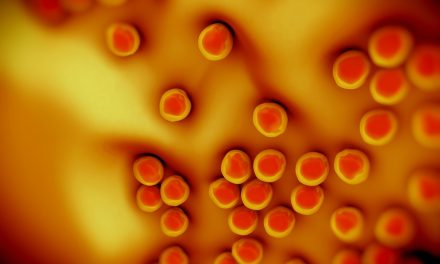RELATED STORY:
Is there a chance that it might suppress our immune system too much? Apparently not. In fact, if you have people watch a comedian for an hour, their natural killer cell activity goes up, compared to watching nothing. Their white blood cell count, the number of immune cells in their bloodstream, also goes up. The level of immune-boosting interferon and antibody production go up as well and even stay up the next day. So, your body is actually pumping out more antibodies because you saw a funny video the day before. In short, humor seems to offer the best of both worlds at preventing over-reactive allergic responses, while also boosting immune protection.
RELATED STORY:
There is a catch, though. You actually have to laugh. And the more you laugh, the better your natural killer cell activity gets. Exposure to a humorous video without laughing did not significantly affect immune function. Those who didn’t physically laugh did not benefit. This reinforces that it is not the funny video that improved immune function, but our laughter in response. Natural killer cells play a significant role in viral illness and various types of cancer. So, being able to significantly increase the activity of these cells using a brief and non-invasive method could be clinically important the next time you have a cold or cancer.
Laughter, like music or healthy food, offers potential benefits without any risks. Or…almost no risks. You’ve heard of side-splitting laughter? In a rare case, a 67-year-old woman attended laughter therapy sessions where, evidently, rapture led to rupture. Thankfully, you can’t actually laugh your head off, but you can laugh until you wet yourself. “Giggle incontinence,” as it’s called in the medical literature, is actually quite common in women, and is no laughing matter.
Does this mean that the next time you go to the theater, you should choose the comedy over the tear-jerker? Not necessarily. Researchers took people with a latex allergy and had them watch a weather video versus a heart-warming drama. Because viewing the weather information video did not cause emotion with tears, it failed to modulate allergic responses. The tear-jerker, however, successfully reduced the allergic response, but only in those whose tears were actually jerked. So, when it comes to improving allergies, laughing and crying both work, if you actually do them.
Anything else you can do? Kiss! There’s actually a whole science of kissing, which sounds like a pleasant enough college major, until you realize it’s about all the diseases you can get. But if you take people with seasonal pollen or dust mite allergies and have them kiss someone in a room for 30 minutes, they have a significant reduction in their allergic reactions, for both the pollen and the dust mites. If you instead just have them hug for that 30 minutes, there’s no benefit. Bottom line: Kissing significantly reduced allergic responses in patients with both allergic rhinitis (runny nose and itchy eyes) or allergic dermatitis (like a rash). “Collectively these findings indicate that the direct action of love may be beneficial,” though evidently cuddling wasn’t quite direct enough.
With all the side effects of antihistamine drugs, you’d think it would have been easy to get people to sign up for the kissing study. But, it was conducted in Japan where, apparently, they “do not kiss habitually.” The follow-up study, which found a similar benefit for an even more direct action of love, was also performed by researchers who apparently did not speak English as their primary language, evidenced by their speculation about females having more “organisms.”
In health,
Michael Greger, M.D.
*Article originally appeared at Nutrition Facts.












